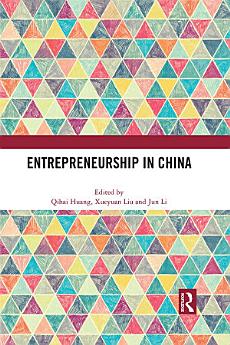Entrepreneurship in China
এই ইবুকখনৰ বিষয়ে
The China Surveys of Global Entrepreneurship Monitor in the last fifteen years consistently indicate the country’s high rate of entrepreneurship. Furthermore, more Chinese entrepreneurs have started setting their sights on business internationalisation. Against this backdrop of a thriving entrepreneurial economy, institutions and business environment are, however, not often viewed as "friendly" to private entrepreneurs and businesses. The "re-emergence" of entrepreneurship suggests a history of struggle to overcome opposition and obstruction, to survive and grow, including "rule ambiguities", rent-seeking, subsidies, and institutional constraints, such as industrial barriers, difficulties in getting access to critical resources, and weak property rights. China has also been experiencing economic slowdown, increase in inequality and worsening environmental problems since the turn of the century, clearly indicating that the rapid development of entrepreneurship in China presents a lot of puzzling questions.
Entrepreneurship in China attempts to deal with these unanswered queries as well as provide an insightful and updated understanding of entrepreneurship development in China.
The chapters in this book were originally published as a special issue of the journal, Entrepreneurship & Regional Development.
লিখকৰ বিষয়ে
Qihai Huang is Professor in Entrepreneurship and Management and Head of Department of Management at the University of Huddersfield, UK. He received his first degree in Sociology from Peking University, China, and both MSc and PhD from the University of Bristol, UK. He has been Director of Research at Keele Business School and Head of Department of Entrepreneurship and Strategy at Lancaster University Management School.
Xueyuan Liu is Professor in Management and had been the Assistant Dean at the Economics and Management School of Wuhan University, China. He received his first degree in English from Nankai University, China, and both MBA and PhD from the University of Salford, UK. He had been a visiting scholar at Columbia University Business School and Fisher College of Business of Ohio State University, and is the founding president of Association of Supply Chain and Operations Management (ASCOM). Prior to his academic career, he had been a professional manager and a founder of a start-up in international business for over 12 years.
Jun Li is Senior Lecturer in Entrepreneurship and Innovation at Essex Business School, University of Essex, UK. He previously held post at Chinese Academy of Sciences and was the President of Chinese Economic Association (UK/Europe) in 2012–2013. He currently serves as Editor-in-Chief of Journal of Entrepreneurship in Emerging Economies.






